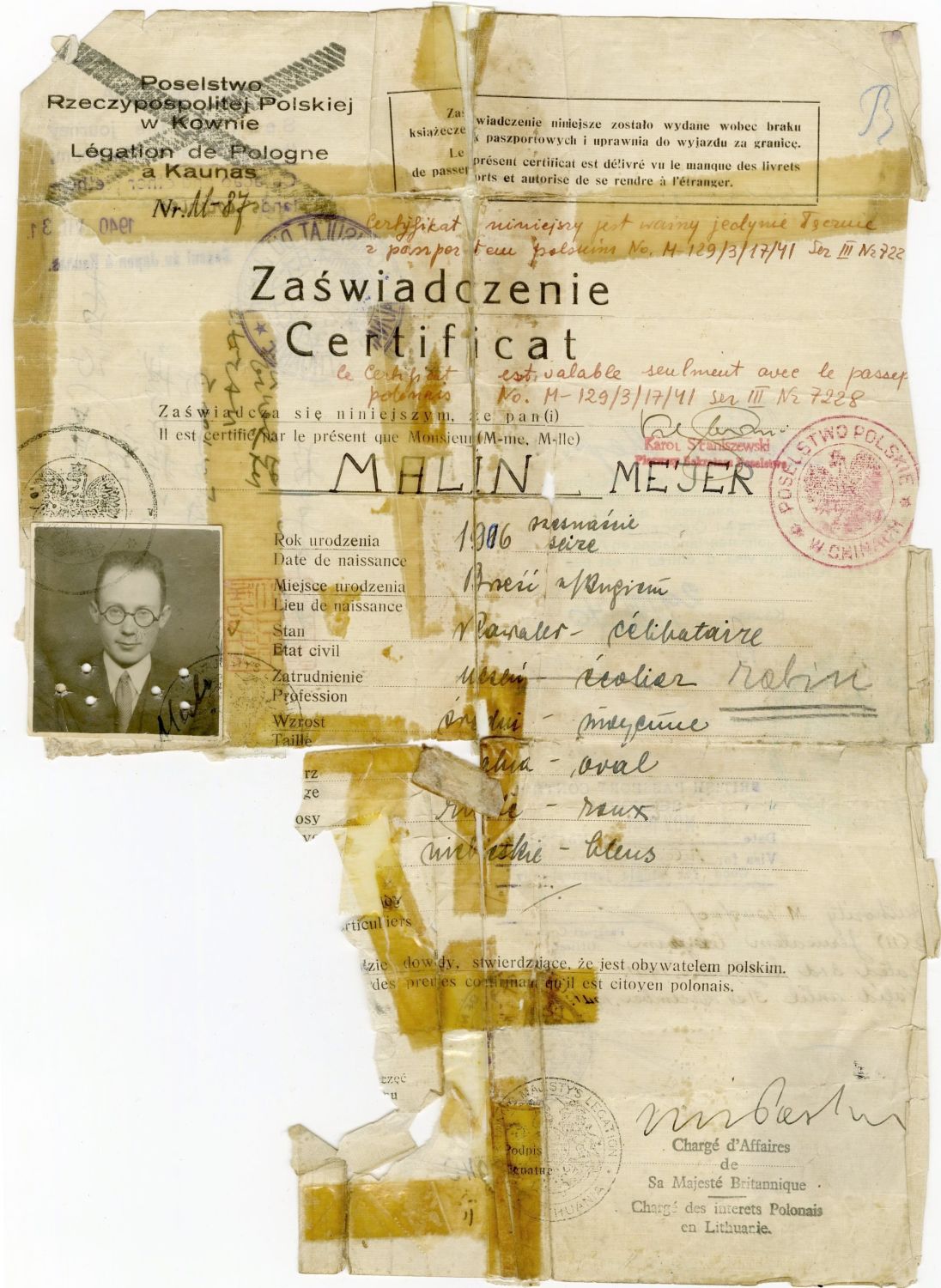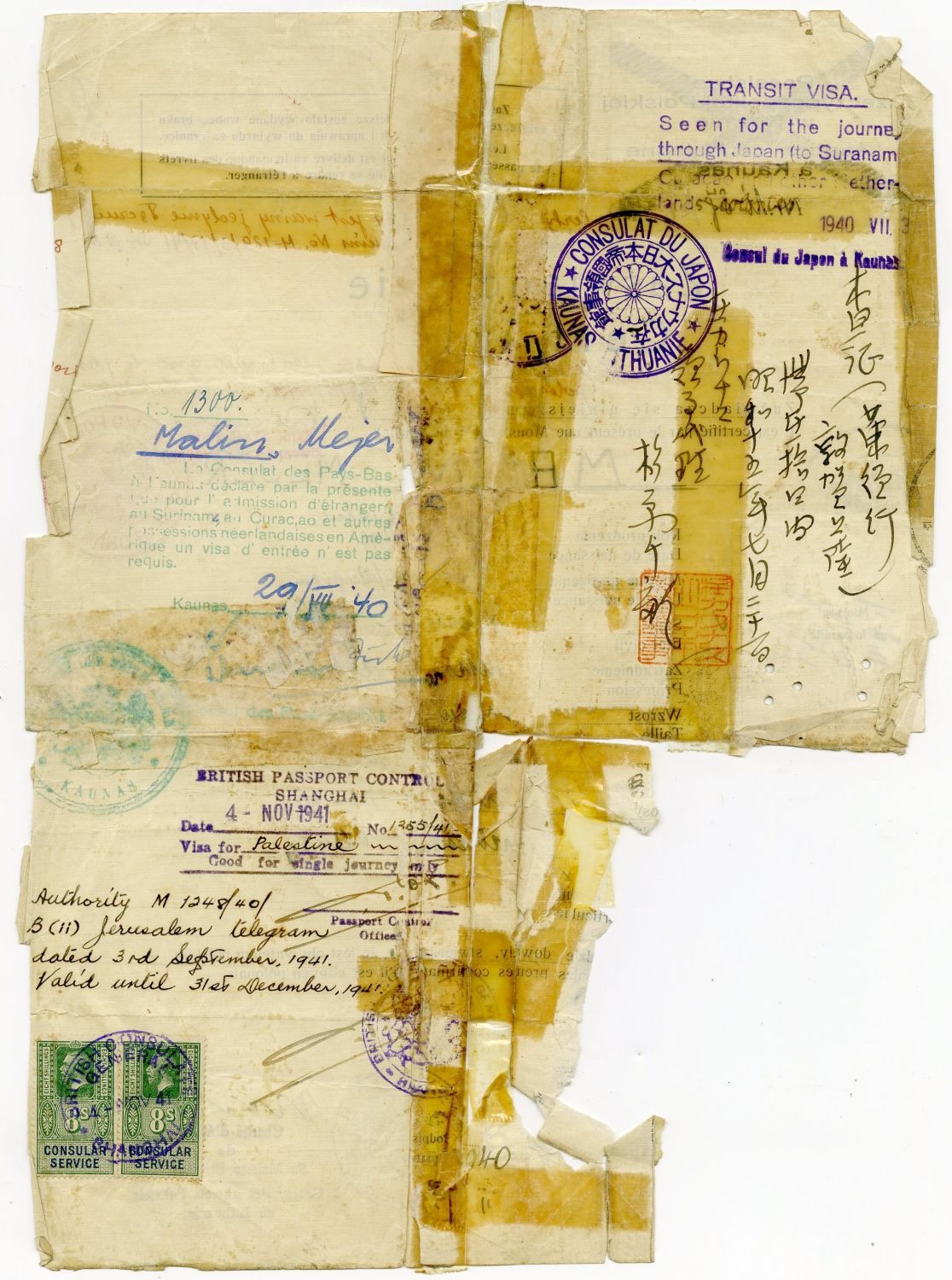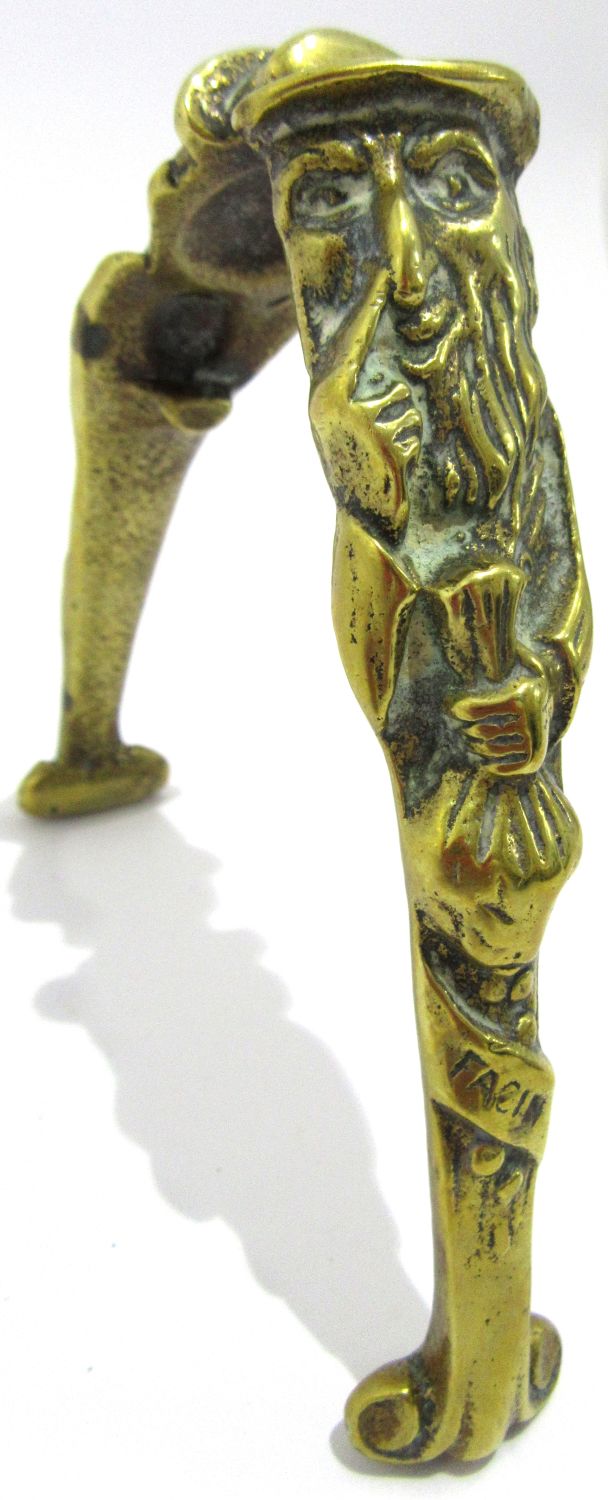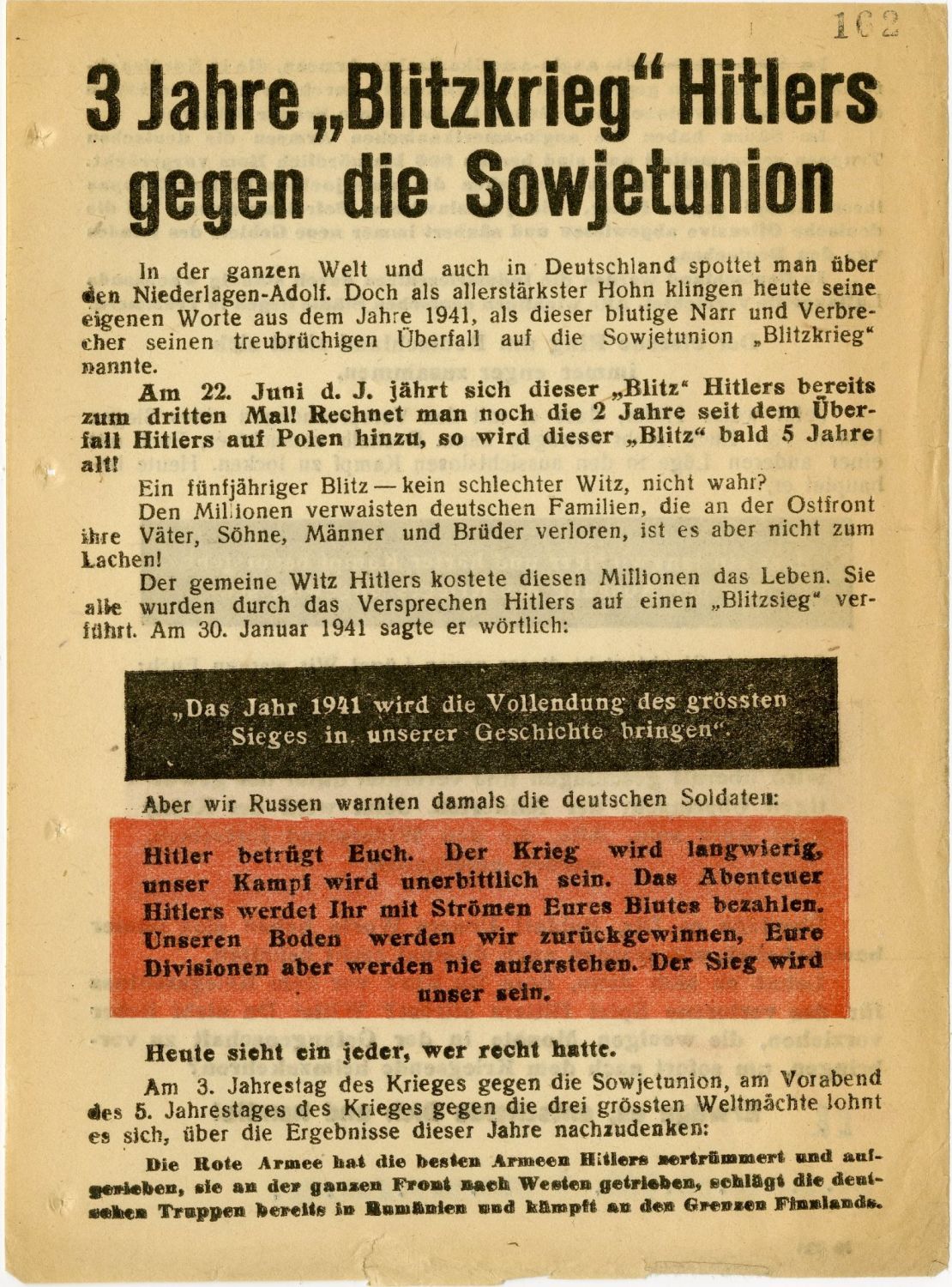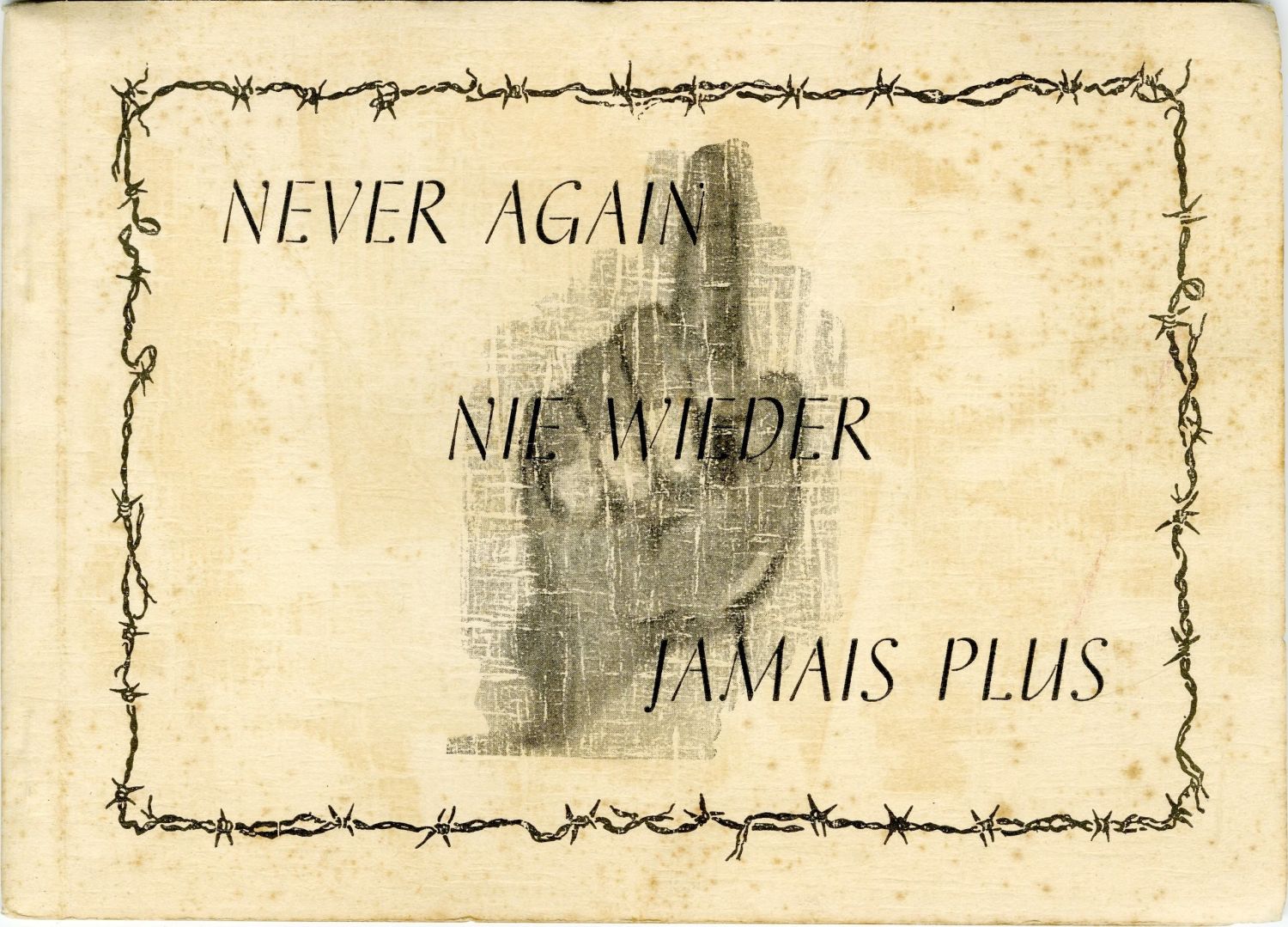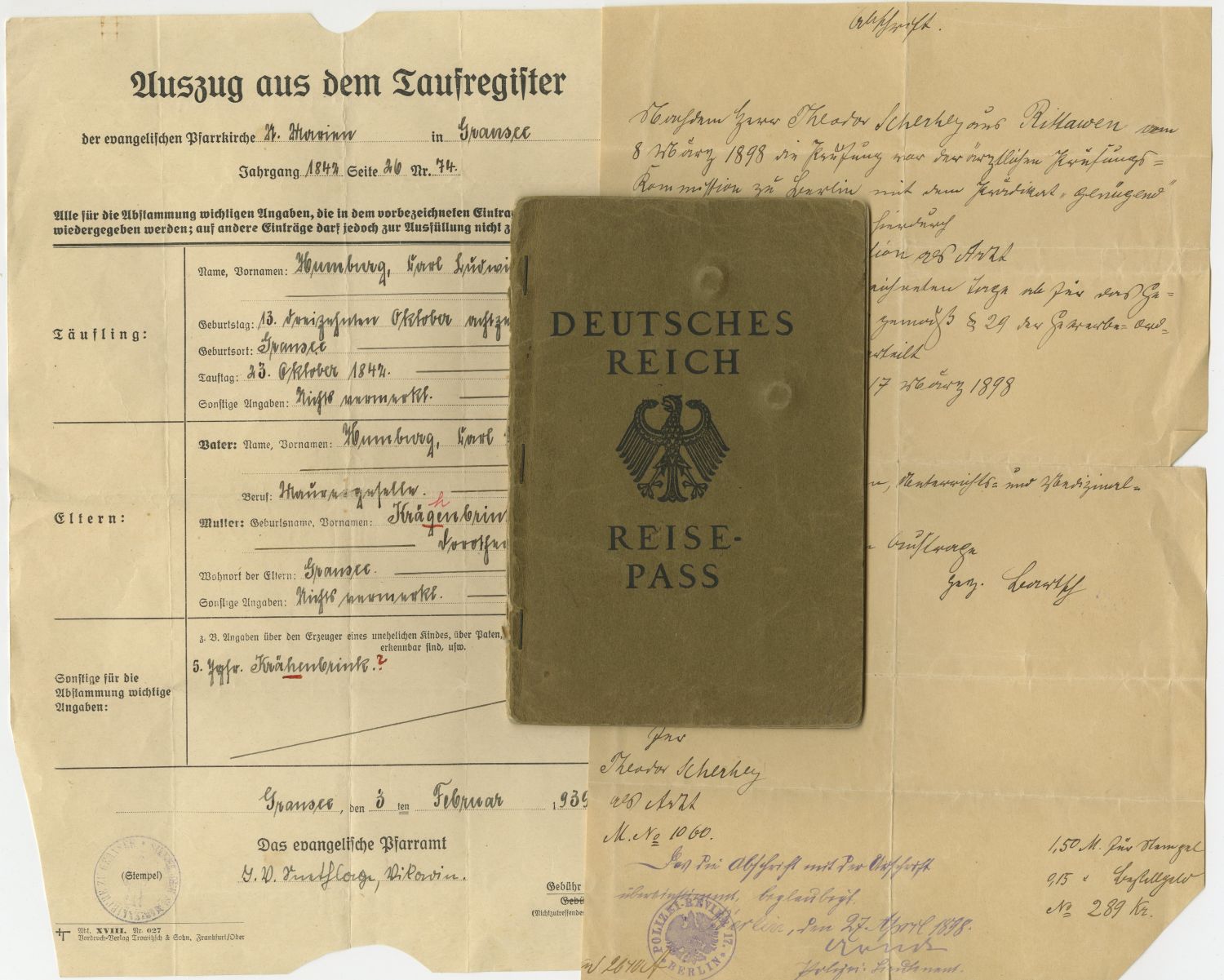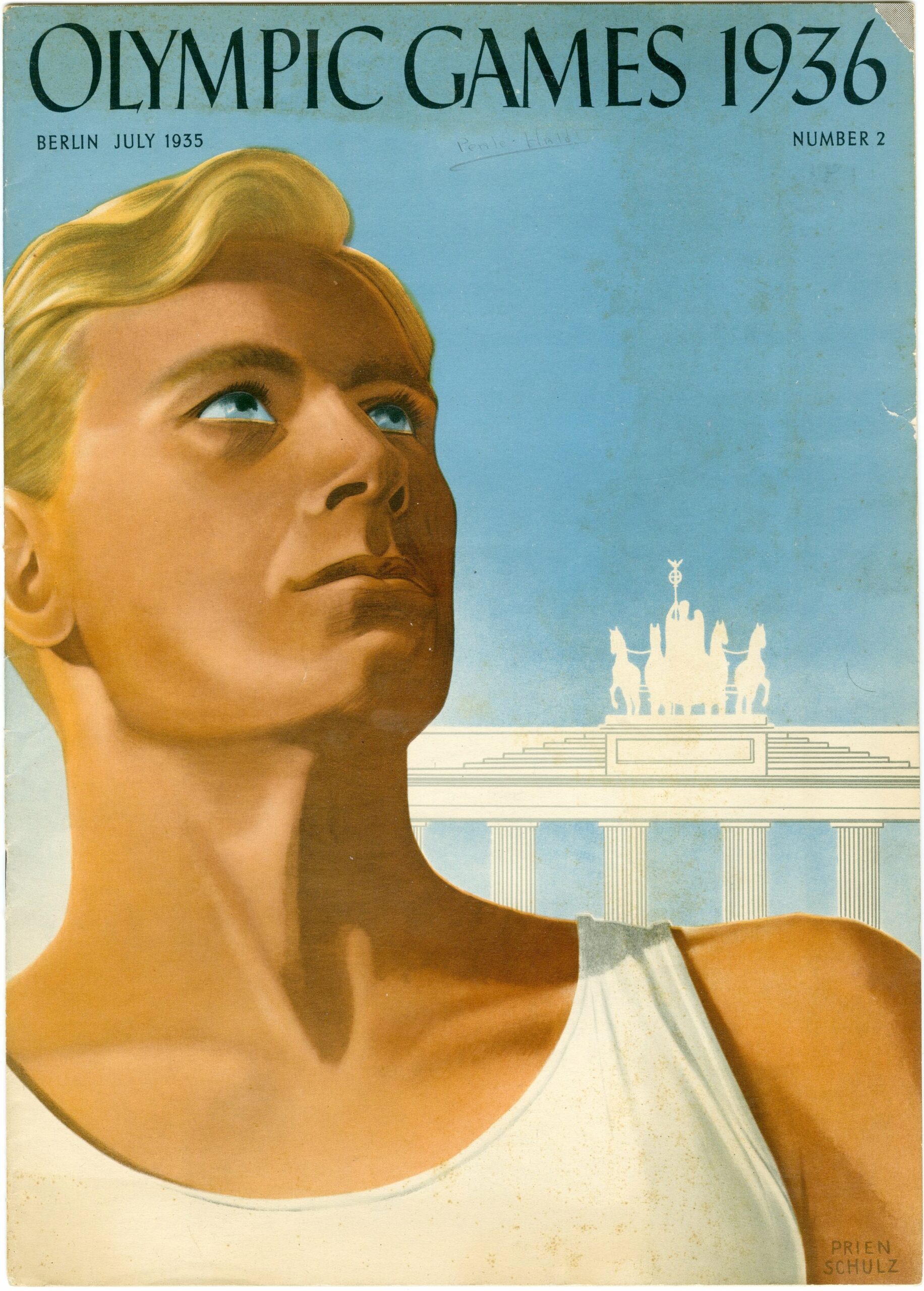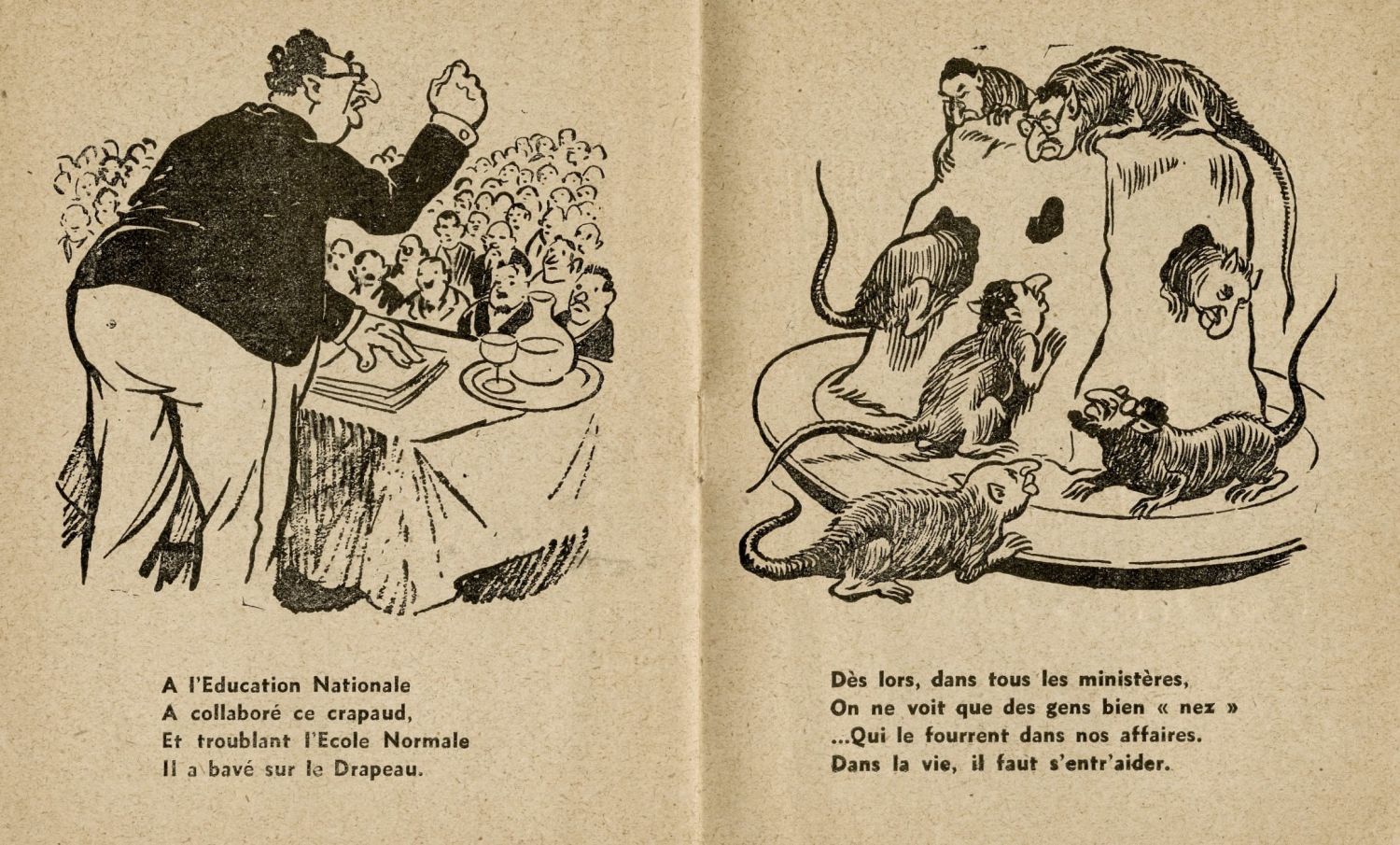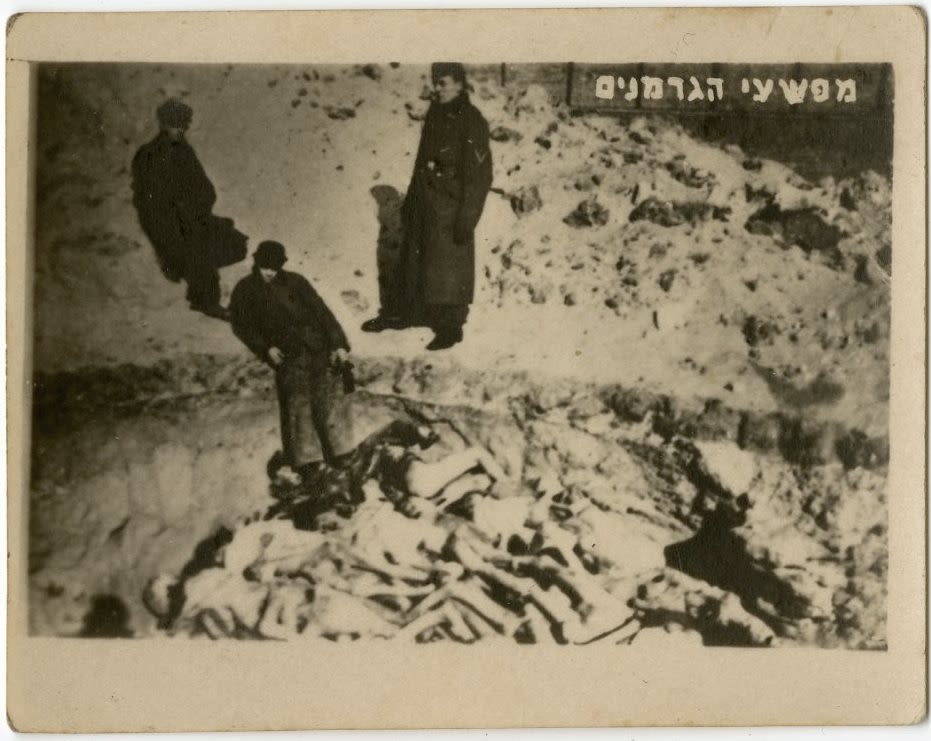Zaswiadczenie certificat. 'Sugihara' Rescue Visa - Life saving document of Rabbi Meir Malin (son of Rabbi Isser Malin, Av Beit Din of Brisk, grandson of Gaon Ba'al Ha "Tosfot Yom Tov"), who escaped from Kovno to Shanghai during the war, and eventually reached Eretz Israel - 1940-1941 signed by Righteous Among the Nations Sempo Sugihara, Kovno 1940. Extremely rare.
A transit visa from Kovno to Suriname via Japan, given to save the life of Rabbi Meir Malin born 1906 in Poland, son of Av Beit Din Brisk Rabbi Isser Malin. Signed by Righteous Among the Nations consul Sempo Sugihara. A 2 page Polish citizenship document of the Jew Meir Malin (MALIN MEYER) given under the auspices of the British consul and British Office for Polish Interests in Kovno, Lithuania. Malin passport photo and Polish stamps (Karol Staniszewski signature and stamp) and British (signature and stamp) and Japanese (signature and stamp) and Japanese (signature and stamp) stamps, personal details filled by hand. On the second page, Transit Visa – transit visa to Suriname via Japan from July 1940 – written and signed in English and Japanese, by Japanese Consul Sempo Sugihara. and another stamp of the British Consulate in Shanghai dated November 4, 1941 with travel permit to Palestine, and the "Jerusalem Telegram" of September 3, 1941.
Sempo Sugihara (1900–1986) served as general consul of Japan in Kovno (Kaunas), Lithuania. In the summer of 1940, when Lithuania was annexed by the Soviet Union, the Soviet authorities intended to transfer all foreign consular representatives from Kovno. The Japanese consulate was also about to close. At that time there were many Jewish refugees in Kovno who were trapped by the war, and sought to flee Europe. The gates of the world were closed, and it was impossible to pass through the Soviet Union without a valid visa for the final destination. But it was known that the island of Curaçao in the Caribbean under Dutch rule did not require entry visas. The Soviets gave their consent for the refugees to pass through the Soviet Union on their way to Curaçao, on condition that they receive transit visas from Japan. As such, Dr. Zerach Warhaftig, one of the leaders of the Mizrachi movement, turned to Consul Sugihara and asked him to issue the visas. Despite his government rejecting the proposal, Sugihara decided to act and issue visas to the Jewish refugees crowding the consulate doors. Three times Sugihara requested approval from his superiors at the Japanese Foreign Ministry to issue visas, but was denied, as issuing a visa required an orderly registration process and proof that the applicant had sufficient subsistence funds. When he saw the security situation worsening, he disobeyed his superiors, and on July 31, 1940 began issuing visas as much as he could. (One explanation for his nickname "Sempo" is that when the Jews to whom he issued visas asked his name, he thought the name "Chiune" would be hard to pronounce for those unfamiliar with Japanese. So he said his name was "Sempo", which is another reading of the kanji characters comprising his name). In the remaining weeks before his scheduled departure from Kovno on August 31, he devoted most of his time to issuing these visas. The students of the Mir Yeshiva who were among the refugees fleeing to Lithuania took this opportunity and received Sugihara’s visa which in effect saved their lives. They eventually arrived in China, where they stayed during the war years, and afterwards to the United States and Israel. It appears that at least 1,600 visas were issued in total (according to Sugihara's estimate, the number reached almost 3,500).
Upon his return to Tokyo in 1947, after being stationed at other consulates in Europe, Sugihara was asked to resign from the diplomatic service because of his refusal to obey government orders seven years earlier. Later, when reminiscing about the dramatic tension-filled days of August 1940, Sugihara explained his difficult situation in a newspaper interview: “I had some difficult nights and struggled within myself. I thought to myself, I can issue transit visas... by virtue of my position as consul. I cannot allow these people to die, people who came to me for help with death looming over their heads. Whatever punishment I receive, I am clearly compelled to act according to my conscience.” In 1984, Yad Vashem awarded him the title Righteous Among the Nations.
The bearer of the permit is Rabbi Meir Malin, son of Rabbi Isser Yehuda Malin (1877-1941). His father, Rabbi Isser Malin, served as Av Beit Din of Brisk until he was murdered in the Holocaust along with his entire family except for his two sons Rabbi Meir and Rabbi Nechemia who escaped with the Mir Yeshiva to Shanghai.
[1] leaf written and signed on both sides. Missing lower left part. Marks of adhesive paper reinforcements from the time of the war. Moderate condition.

